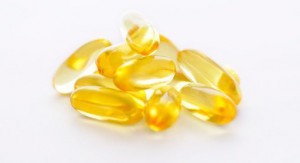Supplements: The Good, the Bad, and the Just Plain Useless
By Anthony Heredia | January 22nd, 2012 | Category: Fitness Couture, Nutrition | Comments Off on Supplements: The Good, the Bad, and the Just Plain UselessA Guide to Supplementing Your Current Nutrition
 Whether you are attempting to decrease, increase, or simply maintain your weight and enhance your health, you are going to need a bit more than the food on your plate. Mention the word “supplements” today, and the topic brings controversial diet pills to mind first for many individuals, unfortunately. Supplements can be great tools, dangerous tools, or just a plain waste of money if you are not sure what you are purchasing. Our goal here is to point out the valuable investments that can actually benefit every aspect of your lifestyle by complementing your current nutrition. Supplements are typically intended for assisting you by most commonly filling in nutrition gaps, not replacing foods altogether. Your body needs assistance regardless of your personal body goals when it comes to nutrition since it cannot produce everything it needs without outside resources. Even the healthiest of us cannot eat a wide enough assortment of foods in large enough quantities to get all of our body’s essential vitamins and minerals daily from food alone. Don’t feel bad. Help has arrived to point you in the right direction for knowing what supplements are worth your time and hard-earned money. This list is a brief guideline of the descriptions for the most commonly used supplements that will help or hurt your diet and further resources to educate your curiosity on each topic.
Whether you are attempting to decrease, increase, or simply maintain your weight and enhance your health, you are going to need a bit more than the food on your plate. Mention the word “supplements” today, and the topic brings controversial diet pills to mind first for many individuals, unfortunately. Supplements can be great tools, dangerous tools, or just a plain waste of money if you are not sure what you are purchasing. Our goal here is to point out the valuable investments that can actually benefit every aspect of your lifestyle by complementing your current nutrition. Supplements are typically intended for assisting you by most commonly filling in nutrition gaps, not replacing foods altogether. Your body needs assistance regardless of your personal body goals when it comes to nutrition since it cannot produce everything it needs without outside resources. Even the healthiest of us cannot eat a wide enough assortment of foods in large enough quantities to get all of our body’s essential vitamins and minerals daily from food alone. Don’t feel bad. Help has arrived to point you in the right direction for knowing what supplements are worth your time and hard-earned money. This list is a brief guideline of the descriptions for the most commonly used supplements that will help or hurt your diet and further resources to educate your curiosity on each topic.
1. Omega 3
o Do I need it? YES!
o What is it? We all critically need omega-3 fatty acids due to our body’s inability to create this essential nutrient. There is not one cell in our entire body that does not directly or indirectly utilize polyunsaturated fatty acids. A 2009 study conducted by Harvard showed Omega-3 deficiency to be the sixth largest killer of Americans, causing more deaths than even the intake of bad trans fats! Omega-3s are crucial to brain function, weight control, normal growth, and maintaining the overall balance. These fats are most commonly identified for their powerful anti inflammatory and disease prevention properties. Deficiency in these essential fatty acids can cause fatigue, dry skin, premature ageing, poor memory, mood swings, depression, poor circulation, and so much more. You need these healthy fats to run your metabolism at full strength and reach the pinnacles of your health.
 o How much do I need? Average of 3000 mg daily
o How much do I need? Average of 3000 mg daily
o Sources and Recommendations: Flaxseed and Krill Oil are just two of many great sources
o Learn more at The University of Maryland Medical Center
2. Multivitamin
o Do I need it? Typically, yes.
o What is it? The human body needs over 34 vitamins and minerals to keep it running at full speed, and who among us feels we eat well enough to say we get that in our diet? Some vitamins and minerals the body can create, but many of these must come from nutritional intake. Natural food sources are regularly first choice for nutrients, but even the most health conscious individuals will struggle to eat a wide enough variety of fresh foods in proper amounts to obtain all they need. A suitable multivitamin is an advantageous support system to your body when it is lacking essential nutrients. It is also beneficial to remember that higher prices and larger doses are not always better. Consumer Reports found that store brands are just as effective as large brand names and cost significantly less. Why pay more for just a label unless you are getting something that is considerably better? Follow the links for more advice.
o How much do I need? This will vary according to the person, but you can follow the “learn more” link for further details on this topic.
o Sources and Recommendations: Costco’s Kirkland Signature or Wal-Mart’s Equate Multivitamin
o Learn more at What Makes a Good Multivitamin? and Consumer Reports
3. Protein Powder
o Do I need it? Typically, yes.
o What is it? There are wide varieties of protein powder with sources such as egg whites, dairy, and soy, just to name a few. Protein powder is a great tool for any nutrition plan due to its simplicity, convenience, and options as a tasty source of food and repair fuel. Protein is needed to build and repair your body and can often be overlooked on busy days when quick carbohydrates are so readily available. Protein powder can be used as a snack, a meal replacement, or even to enhance recovery in a post-workout shake. Protein powder can also help control hunger and calories when you are focusing on weight loss or to add easy calories while endeavoring to pack on more lean muscle. All in all, protein powder is a great tool anyone can utilize. To find out details on choosing from the varieties of protein, follow the links below.
o How much do I need? Will vary according to your goals.
o Sources and Recommendations: Any basic Whey or Casein protein powder is a good start until you learn what your body and goals prefer. Details on choices in the following links.
o Learn more at Protein Full Disclosure or Muscle and Strength
 4. Immune Support (Antioxidants, Probiotics, etc.)
4. Immune Support (Antioxidants, Probiotics, etc.)
o Do I need it? Typically, yes.
o What is it? There are a wide variety of immune and digestive system supporting supplements that can truly assist you and those that can just waste your money. The idea is to understand what you need first. Probiotics, for example, aid in further breaking down nutrients in the intestines and can significantly help someone whose long years of bad eating leaves them suffering from irritable bowel syndrome. The same Probiotics would make minimal changes in a young college student, who typically has the intestines of a mountain goat, although antioxidants are powerful elements that aid in repairing damage in the body caused by toxins, bad nutrition, environmental pollutants, and so much more in just about everyone. An extra boost of antioxidant repair and defensive power is worth further research. Learn more below.
o How much do I need? Will vary according to age and supplement.
o Sources and Recommendations: Acai is still known as a top antioxidant, but not all Acai is created equally, so follow the link below to learn more.
o Learn more at The Super Berry Sweeping the U.S – Acai Revealed
5. Fat Burners, Appetite Control, and Energy Boosters
o Do I need it? Probably not.
o What is it? Nearly every performance enhancing supplement out today falls into one or all of the following three categories: thermogenics, appetite suppressants, and stimulants. Thermogenics typically work by raising body temperature to sweat off water weight or to coax the body into using a larger portion of stored fat for energy during exercise. Appetite suppressants chemically trick your body into avoiding food, and stimulants temporarily speed you up so that you are more likely to be active. All three carry significant risk when misused, and no supplement out today can target fat specifically to be burned; so tread cautiously. There are natural, safe approaches to each category. As a natural thermogenic, wear an extra layer of sweats while you exercise, or eat more chili peppers in your diet. To control your appetite naturally, you can eat a bit more protein, take in more fiber, or look into Hoodia as a supplement for appetite control if all else fails. Lastly, for an extra burst of energy, you can increase your physical activity through exercise, which will speed your body up and consistently maintain higher, long term energy levels. If you really need a kick to become motivated enough to attempt the exercise approach, go natural first. Drink hot black/green tea or black coffee for caffeine rather than a sugary energy drink which will cause a drop in energy later. Keep in mind that none of these help if you do not make healthy changes to your diet and increase activity in your life. There is no magic bullet to good health.
o How much do I need? Caffeine should not exceed 200-300 mg daily to prevent sleeplessness, energy roller coasters, and jitters. Check the caffeine content of your favorite drinks here: Caffeine Content
o Sources and Recommendations: Eat chili peppers as natural thermogenics; increase your protein and fiber; or look into Hoodia for appetite control; and exercise for energy; or drink black coffee.
o Learn more at Natural Thermogenics, Appetite Suppressants and Energy Boost
6. Recovery and Repair Supplements
o Do I need them? Typically do help.
o What are they? There are countless supplements to take to speed up recovery and physical repair, but here we’ll shine the light on l-glutamine, glucosamine and chondroitin. Glutamine is an amino acid, a protein that plays a significant role in recovery and preserving healthy muscle mass. Unless you are training at a competitive level, you can be assured that you will have more than enough glutamine present in any protein powder you may purchase. Glucosamine and chondroitin are elements of the normal cartilage that acts as a cushion between your bones and joints. These supplements are often associated with the elderly but are proven to slow joint destruction and relieve joint pain at any age. Why wait for the pains and destruction to begin?
o How much do I need? Glutamine daily need is 5-8 grams, Glucosamine dose is 1500 mg daily, and Chondroitin is 1200 mg daily, typically.
o Sources and Recommendations:
o Learn more at Glucosamine and Chondroitin
7. Fiber
o Do I need it? YES!
o What is it? Fiber comes in two forms, soluble and insoluble. Soluble fiber attracts water and forms a gel-like consistency; an example of this is nearly every fine powdered fiber supplement on store shelves (for example, Metamucil). Soluble fiber expands and allows you to feel fuller longer, helps control blood sugar, and reduces cholesterol. Insoluble fiber stays bulky for the most part. Examples of this are oatmeal, lentils, fruits, and vegetables. This fiber creates bulk and scrubs your inner linings as it makes its way out to help keep you clean and healthy. Both fibers play an invaluable part in any diet as they are both crucial to digestion and prevention of conditions such as diabetes, heart disease, obesity, constipation, and diverticulitis.
o How much do I need? 20-35 grams daily (American Heart Association)
o Sources and Recommendations: Fresh fruits and vegetables are always best, but Metamucil and oatmeal are also great options if you don’t feel you are getting enough. See link below for more ideas.
o Learn more at WebMD – Fiber
Disclaimer
Note: The resources listed in this guide are not intended to be fully systematic or complete, nor does inclusion here imply any endorsement or recommendation by Agenda Magazine. Agenda Magazine makes no warranties, expressed or implied, about the value or utility for any purpose of the information and resources contained herein.
By Anthony Heredia
Resources:
Omega-3 deficiency causes 96,000 US deaths per year, say researchers: http://www.nutraingredients-usa.com/Research/Omega-3-deficiency-causes-96-000-US-deaths-per-year-say-researchers
The University of Maryland Medical Center: Omega-3 fatty acids
Agenda Magazine Archives: What Makes a Good Multivitamin?
Consumer Reports: Multivitamins – Most we tested were fine, so select by price
http://www.consumerreports.org/health/natural-health/multivitamins/overview/index.htm
Agenda Magazine Archives: Protein Power – The Full Disclosure
Muscle and Strength: Protein Supplements Guide
Agenda Magazine Archives: The Super Berry Sweeping the U.S – Acai Revealed
ABC News: 5 Natural Energy Boosters
Thatsfit: Foods To Suppress Your Appetite
Health Natural: Thermogenic Herbs
Wandel S, et al. (2010). Effects of glucosamine, chondroitin, or placebo in patients with osteoarthritis of the hip or knee: Network meta-analysis. BMJ. Published online September 16, 2010 (doi:10.1136/bmj.c4675).
The Glucosamine Center: http://www.glucosamine-arthritis.org/glucosamine/
WebMD: Fiber: How Much Do You Need? http://www.webmd.com/food-recipes/features/fiber-how-much-do-you-need








